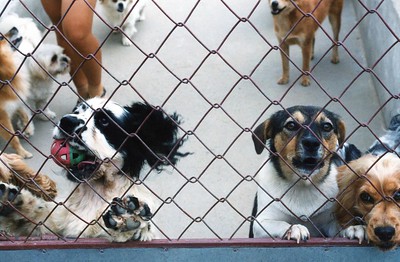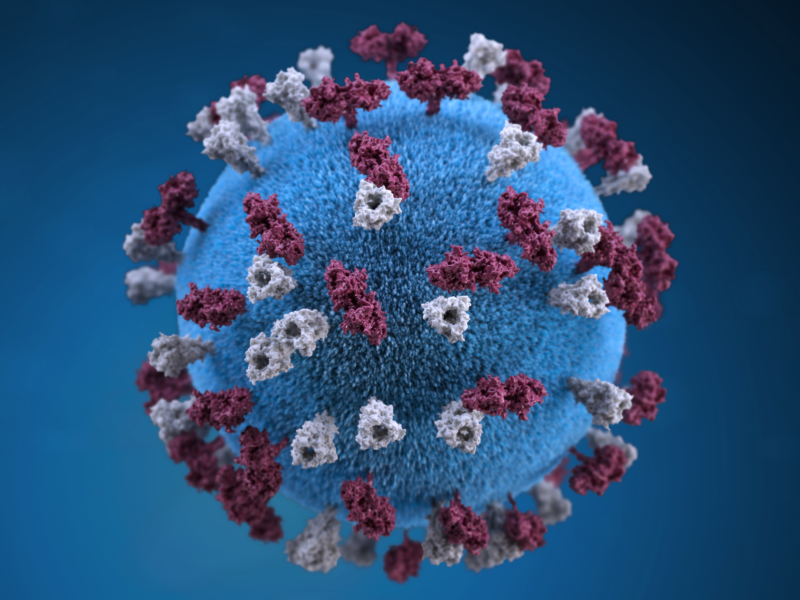Image Credit: Animal People Forum. CC-BY-NC.
The United Kingdom Animal and Plant Health Agency (APHA) has warned dog owners in the United Kingdom (U.K) about the risk of rabies after a shipment of 19 dogs brought over from Ukraine by a rescue charity was found to have improper vaccination documentation.1 These dogs, which had initially passed border checks and have already been rehomed, will now have to be quarantined for three months at the expense of the rescue charity.2
Dogs and other pets being imported into the U.K. with potential health issues is not a new phenomenon. Aside from rabies, health experts have also worried about the spread of Echinococcus multilocularis, Leishmaniasis, Babesiosis, Ehrlichiosis, Heptazoonosis and heartworm when importing dogs from southern or eastern Europe.3 Issues with illegal pet import and improper health documentation are also not new in the U.K., as this ongoing issue prompted harsher border check policies in 2014.4 However, the increase in imports due to the conflict in Ukraine may challenge the established veterinary infrastructure to protect against the spread of diseases as these animals travel.
Some, such as the head of the charity that rescued the quarantining dogs, Elina Oliferuk, believe that the quarantine measures being enacted are too strict. Dogs in a similar situation from other countries would only have to be quarantined for 21 days, but because these dogs are from Ukraine, which is an unlisted country with respect to rabies, they have to be quarantined for months.5 She argues that this law is outdated, as it was put into place 20 years ago, and calls for a reevaluation of Ukraine’s rabies status.6
While the U.K. is taking precautionary measures to protect their status as rabies-free,7 the risk of rabies spread from this event appears to be relatively low at this time. Oliferuk is adamant that the imported dogs received the required vaccinations and completed isolation in Ukraine but simply received low quality blood tests.8 This is consistent with other reports of rabies vaccination in Ukraine – according to EpiCore respondent Anna Keszthelyi, Hungarian sources report that 90-95% of Ukrainian dogs are vaccinated against rabies, but many lack the proper paperwork. Aside from this shipment, unidentified animals are being chipped and vaccinated against rabies at the Ukrainian border, lowering the risk of rabies spread from stray dogs.9 However, given that there are about 1,600 rabies cases in Ukrainian animals each year, there is still some risk.10 Therefore, due to the seriousness of rabies as a disease, it is important for the U.K. and other countries accepting animal imports to remain vigilant against the potential spread of rabies to local populations.
References
1. https://www.vettimes.co.uk/news/apha-warns-of-rabies-risk-from-ukraine/
2. https://www.vettimes.co.uk/news/ukraine-dog-seizures-prompt-call-for-rabies-status-change/
3. https://bvajournals.onlinelibrary.wiley.com/doi/10.1136/vr.105380
4. https://bvajournals.onlinelibrary.wiley.com/doi/10.1136/vr.h5459
5. https://www.vettimes.co.uk/news/ukraine-dog-seizures-prompt-call-for-rabies-status-change/
6. https://www.vettimes.co.uk/news/ukraine-dog-seizures-prompt-call-for-rabies-status-change/
8. https://www.vettimes.co.uk/news/ukraine-dog-seizures-prompt-call-for-rabies-status-change/
9. Volodymyr Polishchuk, Epizootologist, National Consultant FAO


